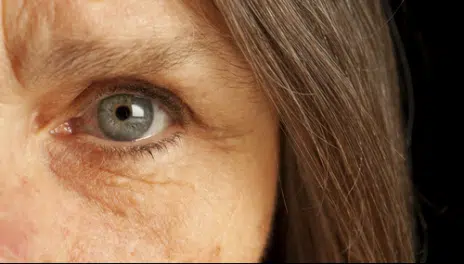Breakthrough AMD Find Could Lead to Sight Loss Prevention in Over 50’s

Scientists have recently made a breakthrough discovery that highlights a link between genetics and AMD. What this means for over-50’s is staggering, as it could actually lead to treatments preventing sight loss in individuals within this age category.
Researchers Teaming Up
The collaboration between Southampton General Hospital and the University of Southampton has yielded results that show a variety of genetic factors contribute to AMD, or age related macular degeneration. This is a condition which is known to affect those over the age of 50 and causes significant sight loss.
According to one of the researchers involved, there are about 34 genes that are contributing to the development of an increased risk of AMD. By identifying the genes, the researchers are actually able to come one step closer in determining the causes of the condition, and once they have done that, they can then begin looking into treatment options.
The Prevalence of AMD
The experts state that there are over 600,000 UK inhabitants who are currently struggling with AMD, and more than 50 million people suffering with the condition throughout the world. These are staggering numbers, with often terrifying consequences because the condition has a direct impact on a person’s day to day quality of life.
What makes research into this area all the more important is that the numbers of people affecting by AMD is set to skyrocket, with more than 300 million people estimated to be affected by 2040.
Progress Towards a Brighter Future
By conducting research that sheds light on the role that genes play in the development of AMD, experts will be in a better position to understand how the condition develops within the body. What is more, the scientists believe that it is through the collaboration of experts worldwide that has allowed them progress as far as they have.
About AMD
While AMD might be a fairly common condition for over 50’s, many are still not sure what it entails. This progressive disease actually kills the retinal photoreceptors, which are the light-sensitive cells that are located at the rear of the eye. Individuals with this condition will find that they no longer have the clear, sharp vision that is required for tasks such as driving, among many others, because of the destruction of the macula.
Contributing Factors
Experts warn that there are a range of contributing factors to AMD, including lifestyle and environmental factors. It is believed that smoking greatly increases the risk of developing this condition, while healthy eating habits can lower these risks.
This research is currently being funded by NEI, or the National Eye Institute and expectations are high for effective treatments that will be made available to the public in coming years.






This sounds promising. It’s good to know that scientists have started to narrow down the cause of AMD, and hopefully will be able to collaborate in future research so this condition can be ameliorated and eventually cured. I haven’t begun to experience this deterioration yet, but I know my mother has difficulty seeing in the dark, so doesn’t drive at night. My night vision isn’t as sharp as it once was, but I haven’t been diagnosed with this condition yet. It’s great to hear some hopeful news that will affect so many, and I’ll be keeping my eyes and ears open for new developments in the future.
My father had AMD and gradually lost his sight almost completely. I’m well aware that I may be destined for the same fate and am now consciously following his example in learning to touch type and ensuring that my computer recognises my voice commands whilst I can still see to train it. He was a musician and, fortunately for him, was able to play entirely by ear. I am a painter so I think things will be more difficult for me. Fingers crossed the scientists manage to find a way to deal with this disease.
I’m very glad to see that there is ongoing research on this topic. Sometimes it seems as if a few of the vital concerns of “over 50s” are put aside in favor of other kinds of research… or “bigger” (for lack of a better term, I do not agree with the assessment!) things to put research money into… so I’m glad to see this article about the report.
My brother had surgery for vision concerns just last week… it would be very good to think that some of those things can be avoided in the future.
AMD hasn’t been a problem in my immediate family, but that doesn’t really comfort me, because I assume it can start genetically in any generation. My dad’s nearly 84 and my mother will be 80 in May, and thank goodness no vision issues to date.
I hear a good deal about macular degeneration within my circle of friends and from acquaintances. One friend, an artist, is desperately hopeful that new research and non-invasive treatments will appear to help her to keep her vision. I can understand her concern. On the other hand, Dr. Dean Ornish, MD, has well-established research that shows that a low fat, whole plant-based diet will raise dietary protective factors and lower the risks associated with eating saturated, animal fats (dairy, meat, fish, fowl) for macular degeneration and cataracts. Ornish’s research flies in the face of Dr. Atkin’s high fat diet (now followed under the name “Paleo”) and is not popular with people who want to eat what they want to eat, regardless of the science that supports eating low-fat, vegan.